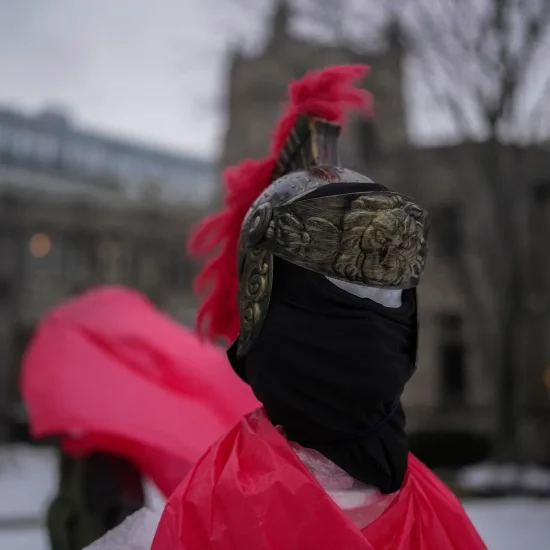NASHVILLE, Tenn. (ABP) — The vast majority of Americans celebrate Christmas and most consider it a religious holiday, but for many Jesus isn't the only — or even the main — reason for the season, according to a new report by LifeWay Research.
"Americans give Jesus a head nod at Christmas but spend most of the season pleasing their eyes, ears and taste buds with decorations, music and meals," said Scott McConnell, director of the research division of the Southern Baptist Convention publisher LifeWay Christian Resources. "Many celebrate Christmas the way most have celebrated Halloween — the fun traditions without sharing the religious significance."
LifeWay Research polled more than 2,100 people representative of the adult population of the United States between Nov. 29 and Dec. 1. Despite the annual debate over whether merchants should avoid using "Merry Christmas" as a holiday greeting out of respect for non-Christians, LifeWay found that only 9 percent are at risk of being offended, because nine in 10 Americans (91 percent) say they celebrate Christmas.
The holiday is even popular for non-Christians. More than half of atheists (55 percent) and nearly two thirds (62 percent) of people claiming other religions said they personally observe the holiday that celebrates the birth of Jesus Christ.
Three fourths (74 percent) of Americans said they either strongly agree or agree somewhat that Christmas is primarily a day for religious celebration and observance. Seventy percent said they believe that Mary was a virgin when she gave birth to Jesus and 79 percent said they believe "Jesus is the reason for the Christmas season."
For most Americans, however, worship takes a backseat to secular observances like gathering with family and exchanging gifts. Four out of five (81 percent) chose family traditions as the most important part of their Christmas holiday.
Two thirds (67 percent) said many of the things they enjoy during the Christmas season have nothing to do with the birth of Jesus Christ.
Four out of five Americans put up a Christmas tree, 79 percent listen to Christmas music and 77 percent decorate their homes.
Christians (94 percent) are more likely to give gifts than non-Christians. Researchers said that may explain why Christians are most likely to encourage belief in Santa Claus.
Overall, a little more than one-third of households (38 percent) encourage belief in Santa, compared to 42 percent of Christian households. Just 27 percent of agnostics or those without a religious preference, 22 percent of those claiming other religions and 18 percent of atheists encourage belief in Santa Claus.
At 58 percent, encouraging belief in Jesus as Savior is actually more common than encouraging belief in Santa, but only 28 percent said they read or tell the Christmas story from the Bible as part of their holiday celebration.
Ed Stetzer, president of LifeWay Research, said the research demonstrates both the increasing secularization of the Christmas experience and an opportunity for Christians.
"Churches often look forward to some of their largest attendance of the year at Christmas week services, and 47 percent of Americans say their household typically attends such church services," Stetzer said. "It may not be a huge percentage, but the survey suggests that Christmas does provide an opportunity for churches to reach typically unchurched individuals."
Stetzer urged Christians to step into the "gap between Christmas participation and biblical information" to proclaim the story of Jesus Christ.
"Christians can often get distracted during Christmas and completely overlook the opportunity to represent Christ to their neighbors," Stetzer said. "Believers can and should put Christ first in our Christmas celebrations and then represent Him to a world in need of the biblical understanding of 'peace on earth.'"
Previous research by LifeWay in 2008 found that people are more open to considering matters of faith during the Christmas season than at other times of the year.
-30-
Bob Allen is senior writer for Associated Baptist Press.






